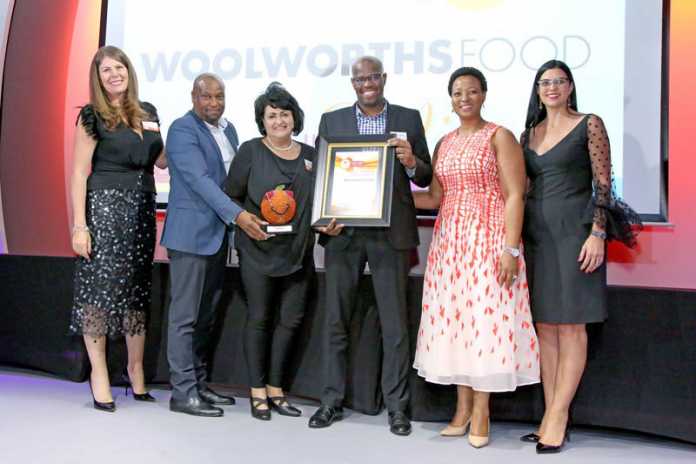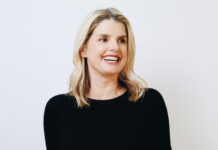At the same time that Finance Minister Malusi Gigaba was issuing his bleak interim budget, the news was announced that South Africa’s private sector service delivery is at an all-time high.
Although the mood was celebratory at the opening of the 2017/2018 Ask Afrika Orange Index Awards, held at The Venue at Melrose Arch last Wednesday, CEO Andrea Gevers referred to the finance minister’s address with a warning for businesses not to rest on their laurels.
In his speech Gigaba quoted Ben Okri’s poem Poetic Flight which offers the final refrain “You can’t remake the world without remaking yourself” and issued a challenge for all South Africans to remake the world around us. Similarly, Gevers said, “If they want to reap a [healthy] harvest businesses need to remake themselves daily. Those businesses that we see here this evening are the ones that have succeeded in continuously remaking themselves.”
The service sector is vital to the South African economy. It drives 60% of GDP, accounts for 63% of employment and of 74% of capital formation. When Ask Afrika started the Orange Index 16 years ago, South African businesses started at a low base, but have steadily climbed year on year. In the early stages of the benchmark, telecoms and banking were rated the highest, they are now at the bottom end of the ranking. Meanwhile the automotive and food retail industries have maintained top ranking status consistently since 2012 and again held the top two positions, with food retail coming in ahead of the automotive industry for 2017/2018.
“Service is a people business which makes it a moving target,” said Gevers. To be successful the sector needs to look at what is happening in society and to approach things from the consumers’ point of view.
“We’ve seen that organisations that obsess about themselves or their immediate competitors, will only ever edge forward, they will never leapfrog. We’ve seen this in business and we’ve seen this in politics,” said Gevers.
The 2017/2016 Ask Afrika Orange Index overall winners
It’s not only the winners of the 2017 Ask Afrika Orange Index that had reason to kick up their heels, this year the entire customer services industry had reason to celebrate. Out of the 32 industries surveyed 29 showed an increase and only three showed a drop. Service levels in South Africa are at their best ever. This year’s Top 10 winners are:
- Woolworths Food
- Donna
- Cape Union Mart
- Miladys
- Audi
- Sportscene
- Burger King
- Roman’s Pizza
- McDonald’s
- Woolworths
Technology is top of the trends
The success of customer services can largely be attributed to their investment in advancing technologies and systems. Self-help channels and bots are allowing businesses to deliver on time and more efficiently. But while services are improving there is also a slow shift towards declining emotional satisfaction and a loss of connectedness as a result.
“With excellent ratings, amazing access to clients, Big Data, world-class systems, AI and chatbots we have the world at our finger tips,” said Ask Afrika Managing Director Sarina de Beer. “The question is ‘what now?’ What will we leverage, how will we integrate and use the current success to build the next tier of success? We need to optimise what we have, use it, go for gold, but find the opportunity to differentiate and be relevant to all our customers’ needs and expectations.
“Relationship and connection is the new game, but this is significantly more tricky to conquer than systems and infrastructure. It is significantly more demanding on inter- and intra-personal skills and capabilities.”
Perfect isn’t all it’s cracked up to be
The flipside of the convenience of technology is that consumers are developing an unrealistic expectation of personalised perfection that makes it difficult to deal with the inconsistencies of human behaviour.
The expectation is that every channel, be it Internet banking, online shopping or a company’s social-media platform, should be tailored to specific needs. They should be easy to navigate, be available 24/7 and any issues we have should be resolved swiftly.
As a result when consumers actually deal with a human contact centre, they expect short queues, validation, accurate knowledgeable information and quick resolution. Where self-help channels direct the interaction with a specific set of clear questions and comprehensive answers, human based responses can get messy. After all humans are subjective, frequently get things wrong and their responses can get cluttered.
Ironically, while consumers get the simplicity and clarity they desire from systems, they are becoming increasingly emotionally dissatisfied and lonely.
Comfortably numb behind our emoticons
It might be more comfortable for consumers to deal with bots and processes but it is resulting in disconnectedness and increasing emotional numbness. In a world where humans can rely on a preselected range of emoticons to hide behind online, and curate a personality and lifestyle for others to admire, emotional range is becoming stunted and artificial.
“Emoticons are hollow,” said De Beer. “They represent a preselected range of emotions that are not owned by ourselves. We can respond to a statement with an emoticon but we don’t expect to actually have to deal with that emotion.”
“If we look at service, reputation, effort, fairness, trust, loyalty and relationships, we see that 65% of consumers collectively state that their emotional experience was one of numbness. ATMs, SMS, and email channels (so non-people channels) do better. When they actually come into contact with a technician the lowest emotional satisfaction is experienced. So our expectations are misaligned.”
A quest for meaningfulness
The customer services industry is no longer about selling a product or service it’s about creating an experience, preferably one that stirs a positive emotion. Successful marketing messages are those that create desirable value statements. Medical aid is no longer just about covering medical costs, it’s about a healthy lifestyle. Cold drinks sell happiness and airlines sell dreams. Consumers no longer aspire to just owning a particular product they want that item to create meaning in their lives.
“We want something to tweet about, we post we type we don’t talk, but we need something to share,” said De Beer.
An increasingly exclusive ‘shared economy’
When talking about a shared economy or collaborative non-ownership, we tend to think it’s something new, like uber or Airbnb, but said De Beer the concept has been around for a very long time. Think stokvels or video shops or libraries. To be a member a person needs to fulfill certain criteria and follow certain rules. To be a member of a library for example, you need an ID and proof of residence, you need to take care of the books you borrow and return them on time.
The difference now is that access to shared economies is becoming a lot more exclusive. To use uber, for example, you need access to the Internet, a smartphone and in some countries, a credit card.
Interestingly businesses like uber and Airbnb are coming full circle in an effort to regain control over expectations, consistency and quality. Airbnb is buying apartment blocks and uber is purchasing fleets.
Tech is the new LSD
“Tech has become our LSD, we expect too much on our own terms and have an elevated need for experience,” said De Beer. “We expect more from tech and less from ourselves and our personal relationships.”
On the upside, tech has allowed people a voice and a sense of power parity. Platforms like social media support allow us to protest and people are using it to engage in narratives that increase their social capital.
“Tech adapts to my likes on my terms,” said De Beer. “The question is how do you build a relationship without compromise? How do we deal with customer dissatisfaction when they can’t compromise?”
We attach to what we nurture
“If we nurture tech that’s what we attach to,” said De Beer. And this disconnected approach is extending to caring. More and more we find that caring is being outsourced to professionals
Take a psychologist as an example. By outsourcing problems, a person gets a full hour to talk about themselves. The professional can offer some insight, but they can’t talk too much and they can’t judge.
What we really need is sociable robots that marry sociability with the convenience of having everything adapt to specific likes and needs. It’s all well and good, but De Beer asks, “Would you let your child have a close relationship with a robotic friend? How do we teach kids the soft skills? Societies fail when we can’t learn together and tech makes us unlearn.
“This year we can celebrate lots of hard that has already happened to make this the best year ever for private sector service delivery, but there is still work that needs to be done to connect and build real relationships and real connections with customers.”
About the Ask Afrika Group:
Ask Afrika Group is the largest independent South African market research company. The company focuses on local relevance, benchmarked against the global context, and is also a member of European, Market Research Organisation (ESOMAR). Apart from its South African footprint, Ask Afrika Group also operates in a dozen other African countries.
Ask Afrika Group is well known for delivering strategic and large-scale field projects and for creating benchmarks for industry.
Target Group Index (TGI) research, for which Ask Afrika Group owns the South African copyright, has an annual single source sample of 15 000 locally and 800 000 globally. It has a global geographic coverage of 70 markets, and measures services, products, media, and brands. Ask Afrika’s knowledge of brands is extensive and TGI is already used by the majority of Top 50 advertisers and media owners in South Africa. TGI complements local and global currencies. It has various integrated software modules and offers the most comprehensive insights into demographics, behaviour, product and brand use and attitudes.
The Ask Afrika Groups’ exclusive product suite includes the Ask Afrika Orange Index®, the Trust Barometer™, TGI, Ask Afrika ICON Brands™ and Ask Afrika Kasi Star Brands, the Digital Barometer and Gateway. Ask Afrika is known for its exceptional service delivery and innovation.
Website: www.askafrika.co.za




















































































